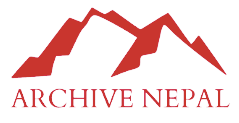Martin Chautari Policy Briefs
The Martin Chautari (MC) began as an informal discussion group in Kathmandu in 1991, allowing development professionals and academics to meet every two weeks to share insights and experiences. In 1995, the name ‘Martin Chautari’ was adopted after the late Martin Hoftun, one of the founders of the original discussion group. After being managed by the Centre for Social Research and Development for six years, in 2002 MC became registered as a separate non-government organization in Kathmandu.
Since its inception, MC’s core objective has been to enhance the quality of public dialogue and the public sphere in Nepal. Started at a time in which Nepal had little, if any, culture of informed public discussion, MC is now nationally known for its discussions which are held three times a week. Chautari also conducts research focused on governance and democracy, media, education, health and livelihoods with cross-cutting themes of gender and social inclusion. A rigorous mentoring program of young researchers is in-built into MC’s work.
Till date MC has published fifty seven books including an annual journal Media Adhyayan [Media Studies, established 2006]. MC is also the editorial home of the journal Studies in Nepali History and Society (SINHAS), published by Mandala Book Point since 1996. Since 2006, MC has opened its research library and media documentation centre to the public. The library’s holdings total more than 15,000 books, a quarter of which focuses on the media.
All five components – the discussions, research, mentoring, publications and library – feed into each other and form an intrinsic part of MC’s primary objective: strengthening the social contract between the state and citizens and expanding and making inclusive the public sphere by promoting informed dialogues and analytically rigorous research. Digital Himalaya is delighted to be able to support Martin Chautari by cohosting these important Policy Briefs.
On account of the compression format we have used for the PDF files, we advise that you install the most recent version of Adobe Acrobat which can be downloaded by clicking here. Please send us a short email to say whether this service is of interest and utility to you.




